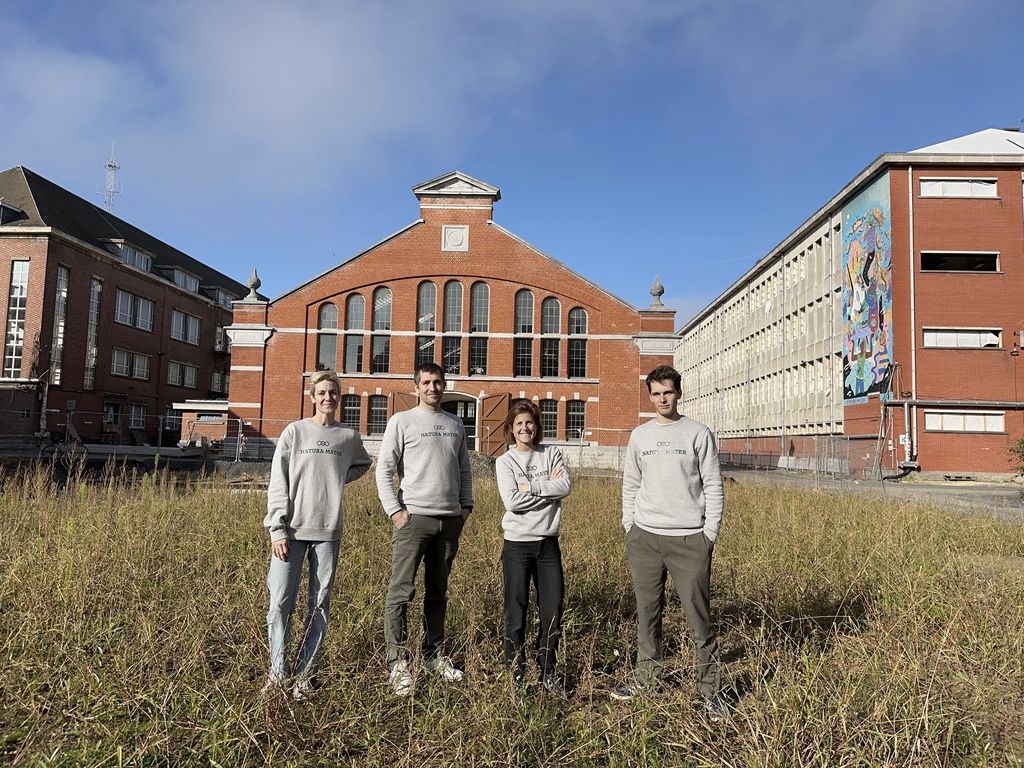Whether using bio-sourced or reused materials, eco-construction is all the rage, with the opening of new agencies to support architects and material libraries. For Natura Mater, a Brussels-based company operating for five years, consultancy, material access, and training form the core of a virtuous business model open to all kinds of entrepreneurs, including designers. It’s a green, grassroots vision driven by co-founder Margaux Cambier.
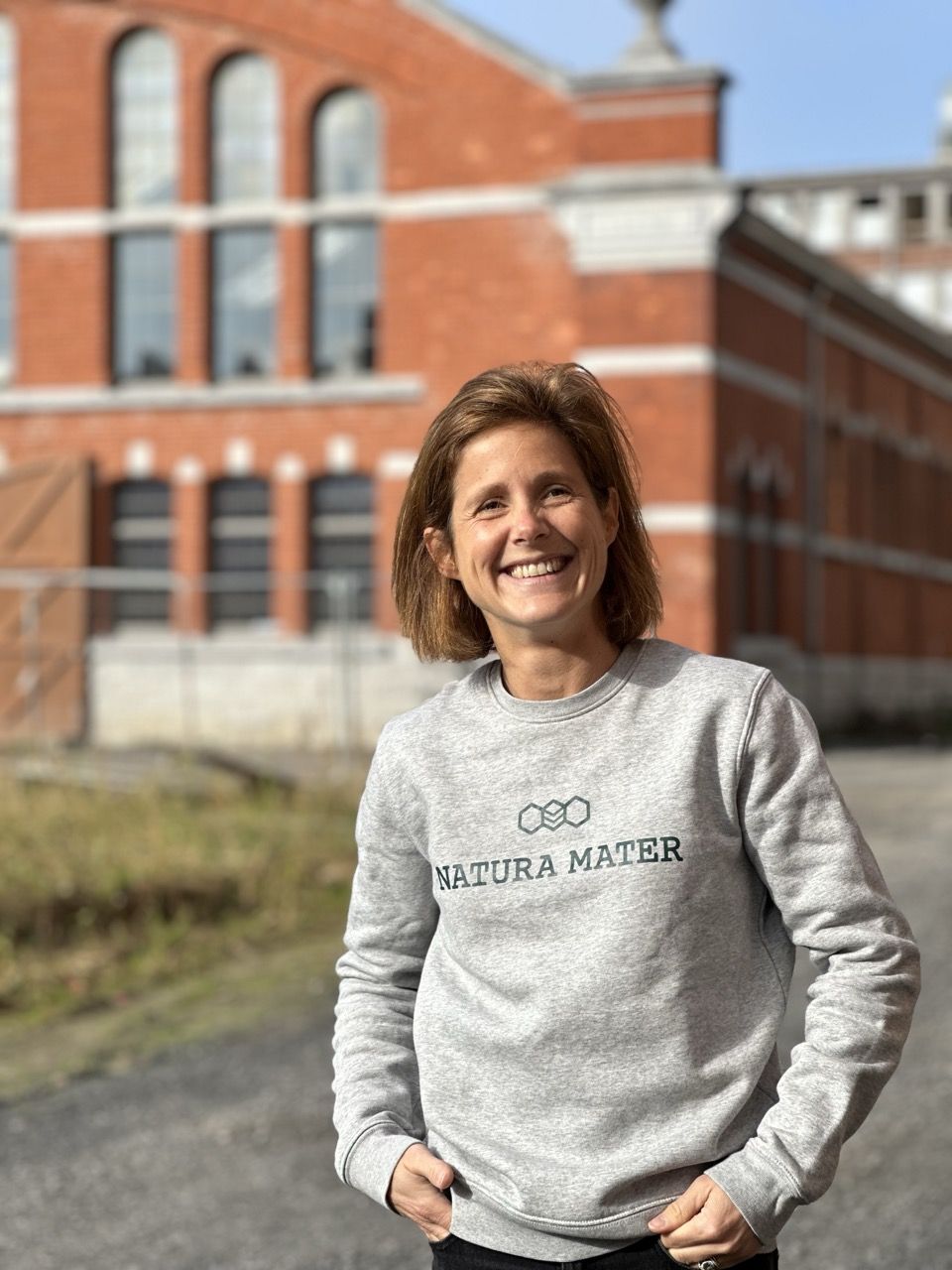
Natura Mater was recently at ‘Renewal’, the exhibition organised by Brussels studio Duplex on eco-design players in Belgium. As an agency for architects, why exhibit at a design event?
We were exhibiting raw materials, both organic and derived from the reuse of materials, that we select for our own material library As a company dedicated to construction professionals, offering workshops as well as construction support through training courses, it seemed essential to us to also be present in the field of design, which is linked to our activity.
Where does the Natura Mater concept come from?
Today we’re founding partners — Jeremy Boomer and I — both architects by training and contractors. We realised that many of our contacts were faced with a lot of waste on the one hand and a lack of information about eco-responsible construction on the other, so we were having a hard time convincing contractors to take on building or renovation projects. Personally, we both found ourselves in this situation, purely by coincidence, when we wanted to renovate our homes. So the initial concept of Natura Mater came to us ‘naturally’, so to speak: to make eco-responsible materials part of the norm, by building on what already exists.
How did you get started?
We started by supplying companies with natural materials such as clay and straw panels, highlighting their inherent qualities. But we quickly realised that first, architects had to recommend them to their clients. Natura Mater has now become a consultancy, with the aim of generating more interest in the subject among architects, who are often aware of the green appeal of bio-sourced, circular materials, but not necessarily aware of how they can be sourced and used in practical applications.
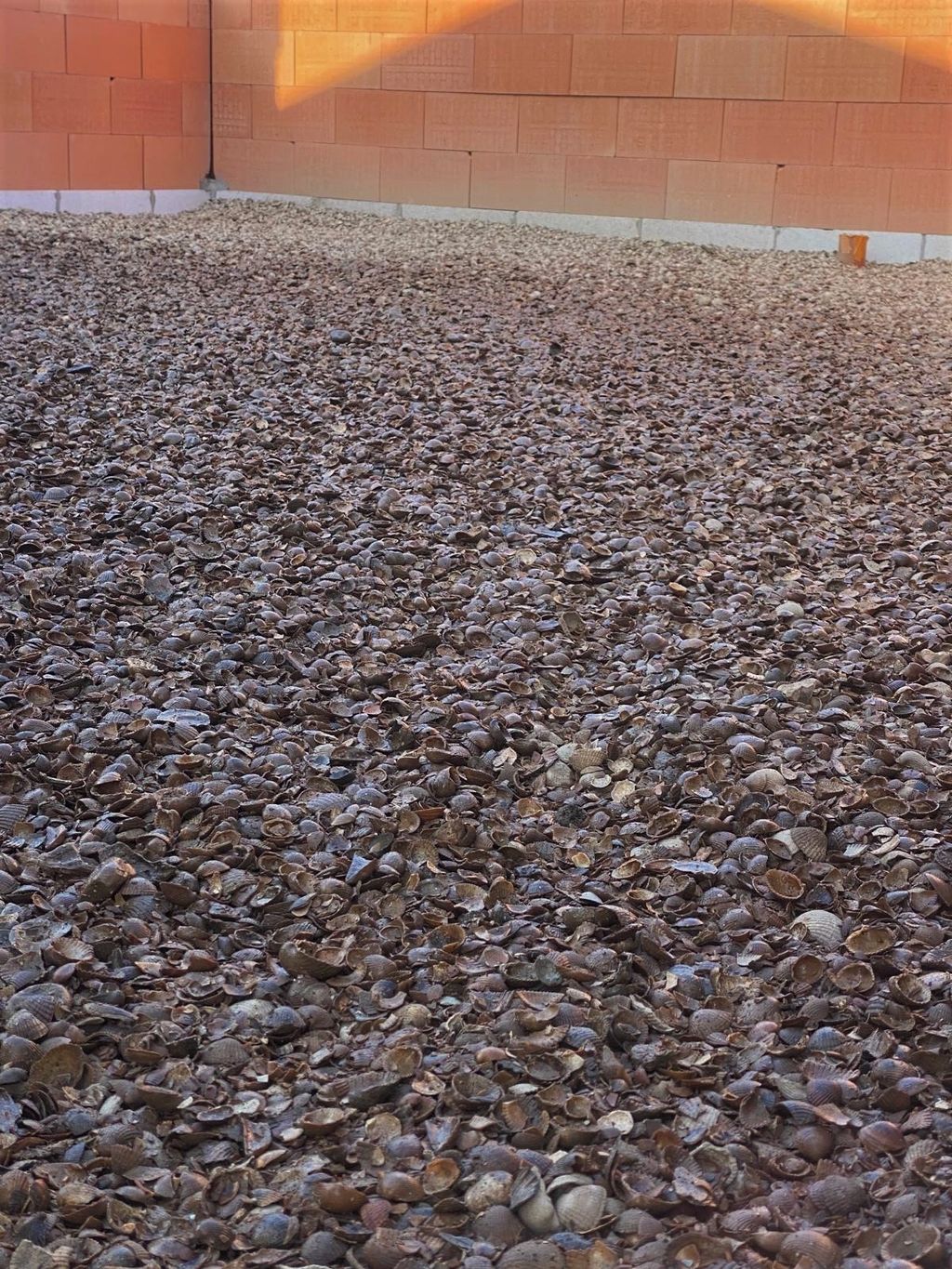
Who is Natura Mater aimed at today?
We target architects first and foremost, as well as construction companies and property developers, for all types of project, from private homes to offices and public authorities.
What is the state of eco-responsible construction in Belgium, and what challenges are you facing?
Over the last five years, we’ve seen a great deal of progress in the sector, and it’s quite positive. More and more companies are turning to Natura Mater. When it comes to bringing projects to fruition, there are still a number of obstacles that we see preventing entrepreneurs from changing their habits and moving up a gear.
What is one of the first habits they need to adopt?
Reusing materials, which is not yet easy for everyone. (And politicians should invest more in this.) Nowadays, it’s still cheaper and easier to construct buildings in an unsustainable way than the other way round. This should not be the case. In addition to their ecological aspect, it should be remembered that eco-responsible materials offer really beneficial added value, for example in terms of insulation.
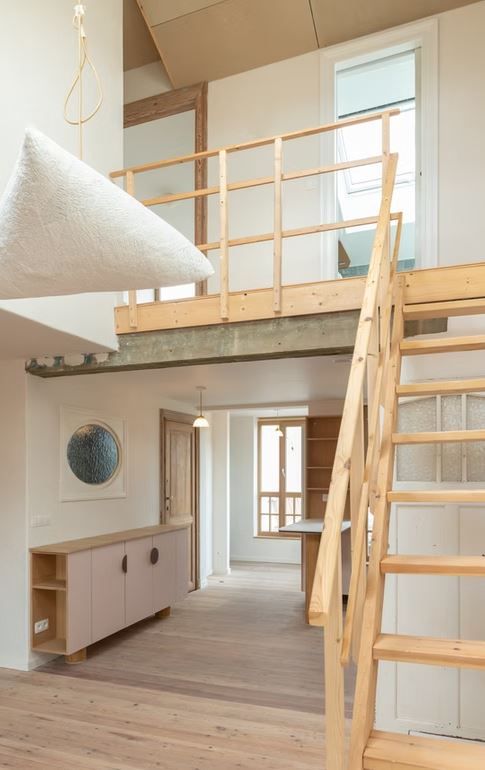
You’ve worked on a variety of buildings in Belgium and even Luxembourg, from homes to educational establishments. What have you noticed in the course of your work?
Cohabs co-living accommodation was among the very first to put its trust in us for their fittings. We are currently working on the Nor05 office project near Brussels North Station. Through these references, we’ve noticed that the PEB constraints sometimes force us to use the wrong materials just to guarantee a figure or the prices. What’s more, contractors often have their own habits when it comes to certain materials, which reinforces the importance of the training we offer.
What do you observe from young architects, and even designers, today?
We’ve noticed that as we’ve been working in schools and architects’ offices, it’s the young people who are the specifiers within their activity group. Building habits need to be changed, but this depends above all on the will of each individual, and the younger generation is one of the best ambassadors for eco-construction.
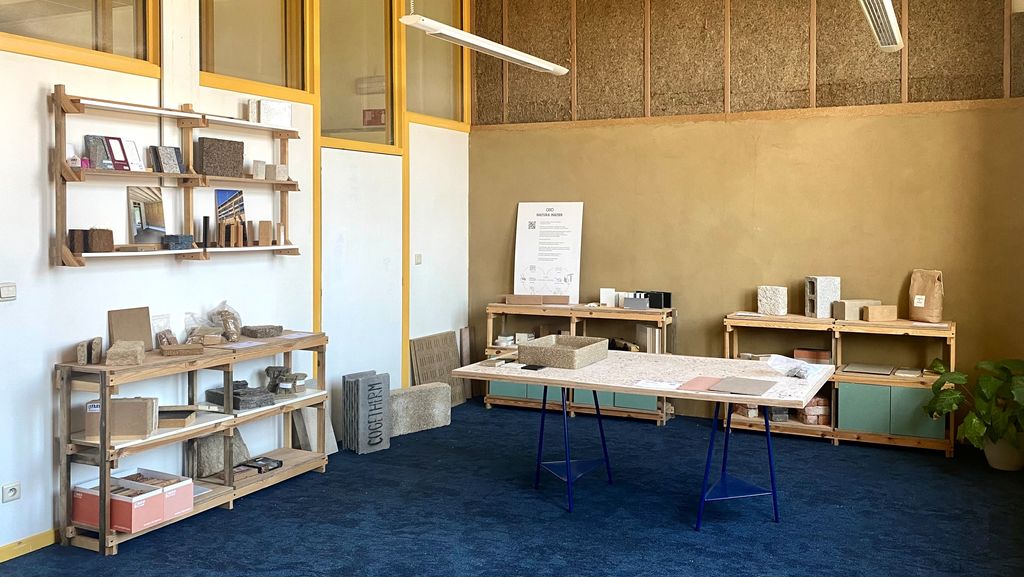
What topics do you cover in your training courses?
The full programme covers all the stages of eco-responsible construction: It’s based on the UNEP (United Nations Environment Programme) report on decarbonising the construction sector. We use its three themes in our training courses so that participants can understand the hierarchy between the different stages. To support this service, our “Materatek” library offers over 300 samples of different materials.
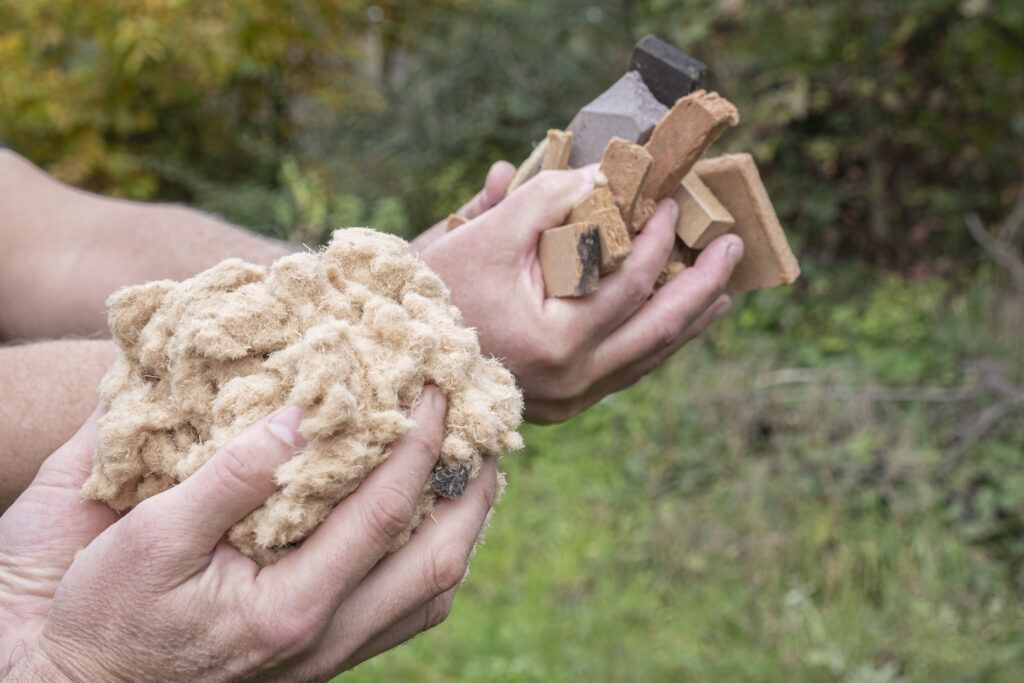
You work with specialist companies such as Lenoo and its bio-sourced wood fibre insulation. How does this benefit you?
We take on the role of ambassador for these companies, putting them in touch with contractors and making them visible in the field so that they can develop their certifications, but also their price ranges to make them more competitive. We work with established and new companies on the Belgian market, such as BC Materials for raw earth, Bambootouch for bamboo as an ecological alternative to other materials, Gramitherm for grass-based insulation made in Belgium, Ecoschelp for shell drainage and Lenoo, which produces in Wallonia wood fibre from recycled MDF panels.

Which materials are doing well?
We’re seeing a return to materials that are traditional, but which are now innovative, such as shells and loose hemp. Hemp offers incredible insulation solutions for floors, with very high performance levels compared with traditional petrochemicals. People also like to discover the story behind these materials. For example, cork is a powerful insulator in terms of regulating and breathing in buildings and is very popular for use on façades. And clay is a natural, local, unprocessed plaster that provides hight hygrothermal and acoustic comfort.
What do you expect in terms of funding support for your sector?
More subsidies for training architects and contractors would help to speed up architects’ transition in the transformation towards eco-responsible construction by making their approach more convincing to contractors. Today, we’re at a turning point at Natura Mater: we’re trying to grow and hire more people. The more clients and projects we have, the greater impact we can have on society.
